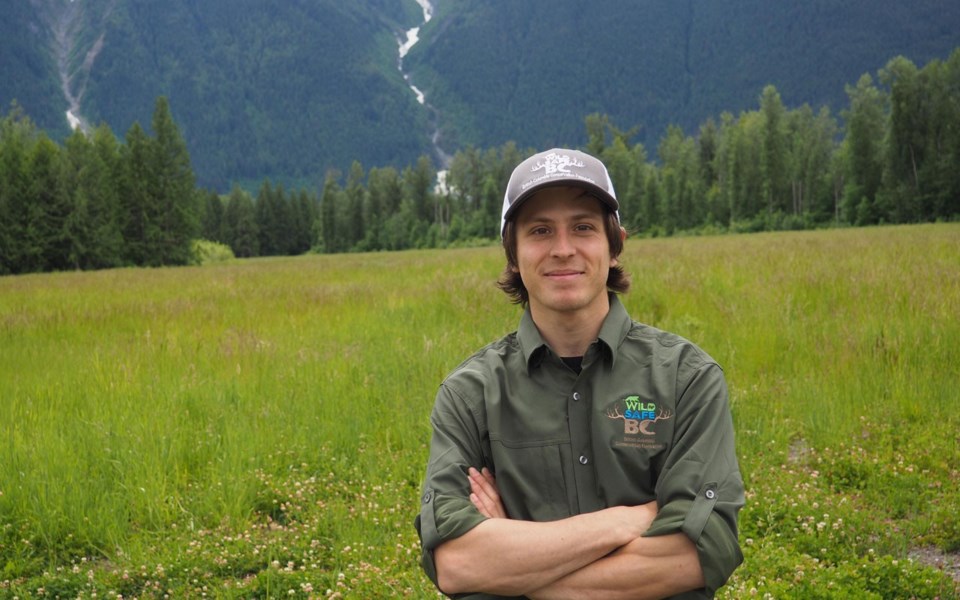After the Conservation Officer Service (COS) destroyed a sow and her two cubs in Furry Creek last year, Squamish Lillooet Regional District (SLRD) chair Tony Rainbow knew the district had to do something.
"It was partly because people in the area behaved in an irresponsible way with regard to storage of garbage and making food available. It attracted the bears," he said. "I had planned this year to have, at least, an education session within the community and bring in some experts to help with that."
However, the SLRD discovered it could do much more, partnering with WildSafeBC to bring community co-ordinator Devin Pawluk to the region. The Ministry of Environment and Climate Change Strategy also provides funding for the position.
"That's better than a one-off, so that's what we're doing," Rainbow said.
Pawluk began training in mid-May and said he's settling into the role, making connections in areas of key focus such as Furry Creek, Britannia Beach and Pemberton Meadows.
"These areas are seeing significant human development and we're hoping by bringing increased awareness and education that we'll be able to reduce or eliminate human-wildlife conflicts," said Pawluk, who is based in Pemberton.
Pawluk, originally from Montreal, holds a degree in environmental science. He moved to B.C. shortly after graduation, working as a ski instructor and nature educator before taking on his current role.
"There's more opportunities out here that exist than back home," he said. "I also came out for the recreational opportunities — I love skiing and biking."
Pawluk explained that WildSafeBC's main goal is to "keep wildlife wild" through collaboration, education and other community solutions. In his particular role, Pawluk is tasked with connecting with and educating the community.
He's currently working on a door-to-door information campaign to educate residents on how to minimize wildlife interactions near the home, while he is also set to appear at community events whenever they resume.
Obviously, some of those efforts are impacted by the ongoing COVID-19 pandemic, though Pawluk is finding ways to deliver them safely.
"We're coming up with innovative ways to maintain that physical distancing and safety for the communities we're in," he said. "When I am going around door to door, I'm not interacting with the residents. I'm not knocking on their door. I'm just leaving a reminder, I try not to touch the door handle at all, wearing gloves, sanitizing my hands after every door I may end up touching."
Pawluk is also enjoying the WildSafe Ranger program, currently being held via webinar, which teaches school-aged kids about wildlife awareness.
Other initiatives Pawluk is undertaking is garbage-tagging, where he will ensure that totes aren't placed out too early in communities with curbside pickup.
"Garbage is an easy food source for bears, and that's where a lot of human-bear conflicts develop," he said. "When bears have access to unnatural food sources like garbage, they can become food-conditioned which then leads them to becoming habituated and associating people with food."
Anyone looking for more information about the programs can contact Pawluk at [email protected].
Pawluk encourages residents to contact the Conservation Officer Service (COS) at 1-877-952-7277 to pass along information regarding wildlife sightings.
"These reports get uploaded to a geo-referenced map called WARP (Wildlife Alert Reporting Program) so the public can go see what wildlife has been reported in their neighbourhood and be alerted to these sightings. It really helps us target problem areas and support the Conservation Officer Service," he said.
Rainbow said the community co-ordinator position is not involved in bylaw enforcement as the SLRD places an emphasis on education, but Pawluk will issue warnings when necessary.
"I really, really would like it to be a program where people become more aware and understand why the rules are in place and what the consequences can be for the animals," Rainbow said. "Our main goal is to educate people to prevent conflict.
"We want our residents to be safe, obviously, but we want our wildlife to be safe as well."
Both the District of Squamish and Whistler also have their own education programs, with Meg Toom heading up wildlife education and co-ordination services for the District.




